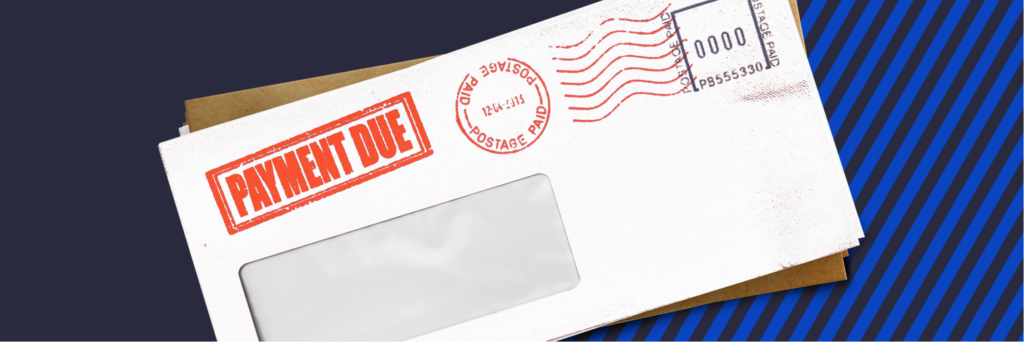If you ever need to pay for large or unexpected expenses, one of the options you have is to apply for a personal loan. When applying for a personal loan, however, remember that it’s not just the amount of money you borrow that’s important. It’s also important to think about the amount of money you’re able to pay back each month.
Applying for a personal loan is a big decision. You need to consider all the factors that go into taking on a loan, including your financial situation, how you plan to pay it off, and the lender you decide to use. Here are eight simple steps to help you confidently apply for a loan.
8 Steps to Apply for a Personal Loan
A personal loan can help you manage emergencies like unexpected hospital bills or car repairs. If you’re confident a personal loan is the right type of financing for you, these eight steps can help to keep your application process on track.
- Check the numbers.
- Run your own credit check.
- Explore your possibilities.
- Choose the best loan for your situation.
- Comparison shop personal loan rates.
- Decide on a lender and apply.
- Gather and provide necessary documentation.
- Accept the loan and begin making payments.
1. Check the numbers
Before taking out a personal loan, you want to ensure you can afford to pay back the amount you plan to borrow. Lenders will typically do their due diligence to make sure you have the ability to repay the debt, but it’s smart to also do your own math.
Begin by figuring out exactly how much money you’ll need. Remember that some lenders assess an origination fee and can deduct that from your loan proceeds so make sure you’ll still have enough left over after the fee to cover your expense.
The loan origination fee covers the cost of processing a loan. The loan origination fees are usually a percentage of the amount loaned.
It’s also wise to use a personal loan calculator to figure out what your monthly payment will be. This can be a little tricky if you aren’t up to speed on what kinds of rates and repayment terms lenders will offer. However, play around with the numbers to get a good idea of what the loan will cost you. From there, you can decide if your budget can handle the loan amount.
2. Run your own credit check
Your credit score helps lenders determine your creditworthiness and how likely you are to repay your loan; the higher your score, the better chance you have of being approved for a competitive interest rate.
Running your own credit check will give you a good idea of where you stand before you apply. You can request a copy of your credit report at AnnualCreditReport.com. All three credit bureaus (Equifax, TransUnion, and Experian) will provide you with a free copy of your credit report every 12 months. Carefully examine your credit report for errors, and if you find any, contact the main credit reporting agencies right away to dispute them.
If your credit score is low, there may be other reasons, however there are steps you can take to improve your credit before applying.
3. Explore your possibilities
Your creditworthiness may require you to have a cosigner in order to to qualify for a personal loan. You may also carefully consider your choice of lender. People with a lower credit score may find it difficult getting approved at traditional banks. However, some online lenders specialize in helping borrowers with less-than-perfect credit. Some credit unions also have short term loans that serve as less expensive alternatives to payday loans.
Remember: It may be worth taking the time to strengthen your credit if you don’t meet the typical requirements and your expense isn’t urgent. You can also reach out to a family member or friend with good financial health about being your co-signer.
4. Choose the best loan for your situation
Now, armed with all the right knowledge, you may be ready to consider which type of loan best fits your situation. Do you go with a lender that will only approve loans for specific purposes or do you choose a lender that may not limit what you can do with the funds?
Whatever you decide, make sure you find a lender that is comfortable loaning you money for the reason you need it. For example, one lender may not allow you to use borrowed funds for business purposes, while another might let you borrow money to fund your small business.
A variety of different loans are offered through lenders, such as:
- Debt consolidation loans: You decrease the number of payments you have to worry about each month and receive one (potentially lower) interest rate when you take out one loan to cover your existing debt. A very common use for personal loans.
- Home improvement loans: Use a home improvement loan to pay for a large renovation up front without talking out a secured home equity loan.
- Medical loans: Medical expenses are often unpredictable. Use a personal loan to alleviate the immediate financial burden and pay down debt over a number of years.
- Emergency loans: Emergency loans can be useful in a variety of situations. Some examples may include, a car breakdown, your water heater breaks, or a smaller medical expense may be good reasons to take out a personal loan.
5. Comparison shop loan rates
Whatever you do, when personal loan shopping, do not simply settle on the first offer you receive. Shop around for the best possible interest rate and compare several types of lenders and loan types to get an idea of what you qualify for.
Personal loan offers are typically available from banks, credit unions, and online lenders. If you’re a long time account holder in good standing with your bank or credit union, check there first. A bank or credit union may be willing to overlook recent credit missteps or give you a better rate when they see a history of positive financial choices made over the years.
Some online lenders pre qualify you with a soft credit check. This typically doesn’t impact your credit score. Check to see if the lenders you are considering offer a pre-qualification process. This will help provide a full understanding of the rates available to you.
Lenders that don’t offer a pre-qualification process typically run hard credit inquiries as part of the loan application process. Too many hard inquiries may negatively impact your credit score.
6. Decide on a lender and apply
You’ve done your research. Now it’s time to pick the lender with the best offer for your needs and start the application process. Each lender treats the application process slightly differently. With some, you may be able to do the entire application process online. The local branch of your bank or credit union may require you to apply in person.
Lenders also require different information on their respective applications. That said, you can typically expect to provide your name, address, Social Security Number, and contact information.
7. Gather and provide necessary information
Even after you’ve submitted your application, your lender will likely ask you to provide additional documentation. Every lender has their own set of requirements. For example, you might need to upload or fax a copy of your latest pay stub, a copy of your driver’s license, or proof of residence.
The lender will tell you what documents they require, if any, and how you can get it to the right person. Remember, the faster you provide the information, the quicker you’ll receive a decision.
8. Accept the loan and begin making payments
When the lender notifies you that you’ve been approved, you will need to finalize the loan documents and accept the terms. You can typically expect to get the loan funds within a week – however some online lending platforms, like Avant, may get the money to you as soon as the next business day after you’re approved‡
Start keeping track of when your payments are due. Consider setting up automatic payments from your bank account. Some lenders may give you interest rate discounts if you set up your account to make auto-payments.
Loan Application FAQs
Am I eligible for a personal loan?
Lenders will take multiple factors into account when determining your creditworthiness. Lenders also use a credit score to determine the risk associated with providing you with a loan. Some factors lenders may consider determining creditworthiness include:
- Income.
- How long you’ve lived at your current address.
- Employment stability.
- Outstanding debt.
What credit score do you need to get a personal loan?
What credit score you need depends on how much you want to borrow and where you want to borrow from. Different lenders have different criteria. Having poor credit doesn’t necessarily mean you can’t get a personal loan. For example, while most Avant customers have credit scores between 600 and 700***, you may qualify for a loan through Avant with a minimum credit score of 550. You can check your personal loan options easily online.
How can I take out a loan with no credit?
Taking out a loan with no credit may cost you more, but is certainly not impossible. Here are some options to consider if you’re looking for a no-credit loan:
- No-credit-check loans
- Payday alternative loans
- Possibly having a co-signer
- Apply for a secured credit card
- Apply for a credit-builder loan
- Apply for a secured loan
What disqualifies you from getting a personal loan?
Your loan may be denied by any lender for a number of reasons. Your credit score may be too low. Your debt-to-income ratio (DTI) could be too high. You may have also asked to borrow more money than the lender thinks you can repay based on factors such as income, employment stability and other outstanding debts.
Do you need collateral for a personal loan?
Personal loans are typically unsecured. They don’t require collateral. That said, some lenders require some personal loans to be backed by something that holds monetary value. Examples of collateral on a secured personal loan can include things like cash in a savings account, a car, or perhaps a home.
Apply For a Personal Loan Through Avant
Fast and easy to understand. Personal loans through Avant may help customers pay bills, improve their homes, cover emergencies, and more – all while demonstrating responsible credit use. Apply for a personal loan through Avant today.
The information provided on this website does not, and is not intended to, constitute legal, financial, or tax advice; instead, all information, content, and materials available on this site are for general informational purposes only. Information on this website may not constitute the most up-to-date legal, financial, tax or other information. This website contains links to other third-party websites. Such links are only for the convenience of the reader, user or browser; Avant does not recommend or endorse the contents of the third-party sites.
Avant branded credit products are issued by WebBank.
Avant, LLC is a financial technology company, not a bank.
* Loan amounts range from $2,000 to $35,000. APR ranges from 9.95% to 35.99%. Loan lengths range from 12 to 60 months. Administration fee up to 4.75%.
* If approved the actual loan amount, term, and APR amount of loan that a customer qualifies for may vary based on credit determination and state law. Minimum loan amounts vary by state.
** Example: A $5,700 loan with an administration fee of 4.75% and an amount financed of $5,429.25, repayable in 36 monthly installments, would have an APR of 29.95% and monthly payments of $230.33.
*** Average FICO score of Avant customers accurate as of October 11, 2022.
†The decision process may take longer if additional documents are requested. Approval and loan terms will vary based on credit determination and state law.
‡ Funds are generally deposited via ACH for delivery next business day after approval if approved by 4:30pm CT Monday-Friday.
Avant of Washington, LLC DBA Avant is a wholly-owned and operated subsidiary of Avant, LLC Nationwide Multistate Licensing System #1440089.
Avant, LLC Nationwide Multistate Licensing System #1243761.
Connecticut consumers: all marketing efforts are associated with Avant of Connecticut, LLC d/b/a “Avant”, Small Loan Company License #SLC-1457409
THIS IS A LOAN SOLICITATION ONLY. AVANT, LLC IS NOT THE LENDER. INFORMATION RECEIVED WILL BE SHARED WITH ONE OR MORE THIRD PARTIES IN CONNECTION WITH YOUR LOAN INQUIRY. THE LENDER MAY NOT BE SUBJECT TO ALL VERMONT LENDING LAWS. THE LENDER MAY BE SUBJECT TO FEDERAL LENDING LAWS.




